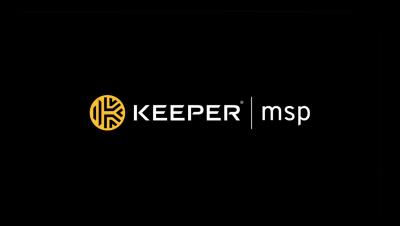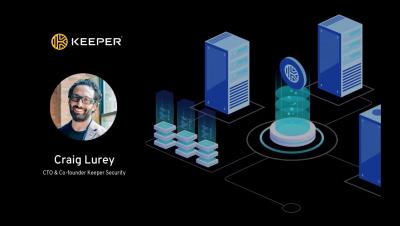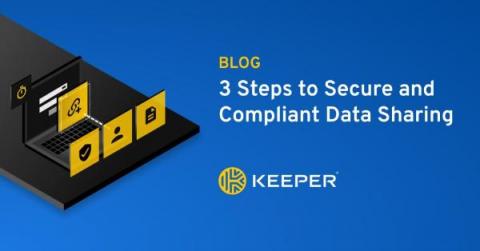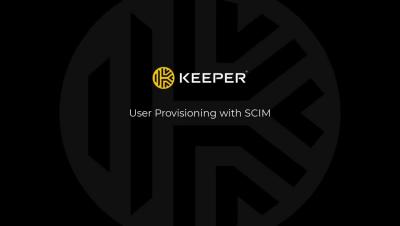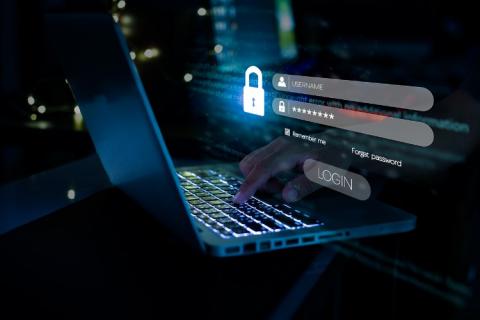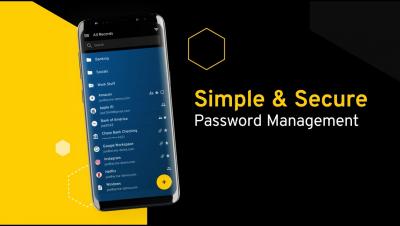Security | Threat Detection | Cyberattacks | DevSecOps | Compliance
July 2022
Keeper | MSP
Keeper Secrets Manager
3 Steps to Secure and Compliant Data Sharing
Every day, organizations subject themselves to audit violations and data leaks when their end-users share sensitive data with third parties – essentially anyone outside of your organization. Various regulations and compliance frameworks require sensitive data to be encrypted with industry-grade security while at rest and in transit.
User Provisioning with SCIM
Keeper vs Delinea: Which Privileged Access Manager is Better for Your Business?
Privileged access management (PAM) uses cybersecurity strategies, tools, and technologies to control access permissions for users and systems across an IT environment. The goal is to hone in on privileged access controls to mitigate the risks of a cyberattack. According to the 2021 Privileged Access Management Solutions Market Offering, the global PAM solutions market size was valued at $2.47 billion in 2020 and is projected to reach $19.73 billion by 2030.
The Complete Guide: Migrating from LastPass to Keeper
Businesses looking for a LastPass alternative should find a solution that is more than just a password manager. Keeper Security is the ideal password management solution for growing small and medium-sized businesses (SMB). We offer tools for password management, secrets management, remote connection and other security features to protect you and your team. Fortunately, migrating over to Keeper has never been easier.
Three Hard Truths About Organizational Cybersecurity
Workplace Password Habits Leave Organisations Vulnerable to Cyberattacks
KuppingerCole Analyst Report on Keeper's EPM Solution
Keeper vs LastPass: What's the Difference?
Keeper Security and LastPass are both password managers, but each solution offers unique user features and benefits. While LastPass has been around a bit longer, Keeper’s innovative security technology makes it a top contender for businesses of all sizes, in every industry vertical.
Avoid the 3 Pitfalls of Native Database Auditing for Privileged User Monitoring
Regulations and frameworks such as PCI-DSS, SOX, NIST SP 800-53, NERC CIP and HIPAA require privileged user activity to be monitored and audited sufficiently for investigation. Privileged user monitoring and auditing for databases are critical as databases often contain the most sensitive information to an organization. Many organizations leverage built-in database auditing capabilities included with their databases to meet these monitoring and auditing requirements.
Keeper for Android on Google Play
How Zero Trust Strengthens Password Security
Password security is crucial to preventing cyberattacks. It is important to find a password manager that enables the zero-trust security model to mitigate the risks of data breaches from compromised user accounts. The U.S. government released a memorandum earlier this year, detailing the requirement for federal agencies to achieve zero trust by the end of Fiscal Year 2024 in an effort to strengthen their cyberdefenses.
The Complete Guide to Identity and Access Management (IAM)
With the rising trend of digitization, major companies like Airbnb, Microsoft and Twitter are staying out of the office, moving processes online and allowing employees the option to work from home. Organizations are adopting remote and hybrid working models. As a result, many people are spending more than double the amount of time online as they did pre-pandemic.



